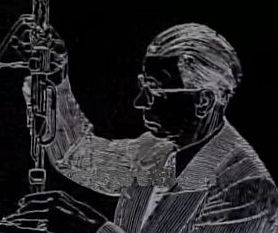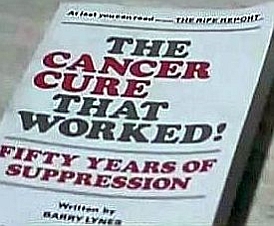.
S
i t e S e a r c h
A_B_C_D_E_F_G_H_I_J_K_L_M_N_O_P_Q_R_S_T_U_V_W_XYZ
List
of Topics__Ask
Suby__Free
Stuff__Questions
Lists
Terms
of Use__________________Privacy
Policy
Interlinked
Dictionary© based on
Merriam-Webster's
Collegiate® Dictionary (m-w.com)
and Star
Dictionary
Use the BACK
button on your browser to return
monsoon.noun.plural.monsoons
a wind system that influences large climatic regions
and reverses direction seasonally; a wind from the southwest or south that
brings heavy rainfall to southern Asia in the summer; the rain that accompanies
this wind
monsoonal.adjective
moribund.adjective
on the verge
of becoming obsolete.(a
moribund theory, a moribund way
of life); approaching death; about to die
moribundity.noun
moribundly.adverb
Benito Mussolini.proper
noun
known as 'Il Duce', 1883-1945, Italian creep,
dunce
and fascist.dictator
who became prime minister (1922-1943) and conducted an expansionist foreign
policy under cabal sponsorship,
formalized an alliance with Germany (1939) and brought Italy into World
War II (1940) as part of the cabal's plan. Fascist squads, militias inspired
by Mussolini but often created by corrupt and cruel local leaders, swept
through the countryside of the Po Valley and the Puglian plains, burned
down union and party offices and terrorized the local population. Hundreds
were humiliated, beaten or killed. Benito dropped tons of gas bombs upon
the Ethiopian people he was invading. Mussolini's government passed anti-Semitic
laws in Italy that discriminated against Jews in all sectors of public
and private life and prepared the way for the deportation of some 20 percent
of Italy's people of Judean descent to German death camps during the war,
a cabal trick used also by other cabal controlled governments, even today,
in hiding themselves under the name of those of the tribe of Judah and
other names today, where they developed the anti-semitic
name to garner.sympathy
and protection. Mussolini agreed to a suggestion by Hitler about establishing
a new Fascist government in the north by executing those members of the
Grand Council. Meanwhile, Italian Fascists maintained their alliance with
the Germans and participated in deportations and the torture of suspected
partisans.
Fascist squads, dressed in black
shirted uniforms and often financed by landowners or industrialists,
used systematic violence to destroy these organizations. Thousands of people
were beaten, killed or forced to drink castor
oil and run out of town. Hundreds of union offices, employment centres
and party newspapers were looted or burnt down. Benito was dismissed
by Victor Emmanuel III (1943), Benito being a cabal puppet. Benito had
led a Nazi government
in northern Italy until 1945, when he was assassinated. The
egotistical.despot
Mussolini took the title Il Duce (The Leader). His clenched fist, jutting
jaw, fiery speeches and dramatic poses became his trademarks; a hard core
totalitarian
cabal puppet,
We the People
in Italy eliminated him by hanging him upside down in the town square,
stripping him naked and beat him with whatever they could until he died.
A fitting retribution for this
corrupt political cabal tyrant who
murdered so many and caused much destruction.
comprised
with information
from Encyclopedia Britannica and Microsoft®
Encarta® Encyclopedia 99. © 1993-1998 Microsoft Corporation.
All rights reserved.
militant.adjective
fighting or warring; having a combative character;
aggressive,
especially in the service of a cause (militant political activists) militant.noun,.plural.militants
a fighting, warring or aggressive person or party
militance.noun,.plural.militances
militancy.noun,.plural.militancies
militantly.adverb
mentor.noun,
plural.mentors
a wise and trusted counselor or teacher
mentor, mentored,
mentoring,
mentors.verbs
intransitive
verb use.to serve as a trusted counselor
or teacher
transitive
verb use.to serve as a trusted counselor
or teacher to others
melancholy.noun.plural.melancholies
pensive.reflection
or contemplation such as
these two songs elicit, which can
enrich your soul by (1, 2);
melancholy also means a sort of sadness of the spirits; an emotional state
characterized
by deep reflection
melancholic.adjective
affected with or subject to melancholy; of.or.relating.to
melancholia
melancholic.noun.plural.melancholics
melancholically.adverb
melancholy.adjective
tending to promote a different and deeper state
of mind which, like all things, can be positive or negative (a letter with
some melancholy news)
melancholily.adverb
melancholiness.noun.(words
ending in 'ess'
are usually without pluralization - adding an 'es'
making '...esses'
is clumsy)
melancholia.noun.plural.melancholias
depression, apathy accompanied
with a desire for withdrawal
melancholiac.noun.plural.melancholiacs
melancholiac.adjective
mediocre.adjective
moderate to inferior in quality; ordinary; average
mediocrity.noun,.plural.mediocrities
the state or quality of being mediocre;
mediocre ability, achievement or performance; one that displays mediocre
qualities
mediocritize.verb
mediocritization.noun,.plural.mediocritizations
maudlin.adjective
effusively
or tearfully sentimental-(displayed
an almost maudlin concern for seals)
maudlinly.adverb
maudlinness.noun.(words
ending in 'ess'
are usually without pluralization - adding an 'es'
making '...esses'
is clumsy)
mistaken.verb
past
participle.of mistake
mistaken.adjective
wrong or incorrect in opinion, comprehension,
perception
or action; based on error;
wrong (a mistaken view of the situation); doing something that turns out
opposite to what is expected
mistakenly.adverb
mistake.noun,.plural.mistakes
an error or a fault.resulting
from defective.judgment,
deficient
knowledge or carelessness
mistake, mistook,
mistaken,
mistaking,
mistakes.verbs
transitive verb use.to
comprehend
wrongly; misinterpret
(mistook the unusually warm weather as a sign of global warming when it
was only a chinook wind); to recognize
or identify.incorrectly
(he mistook her for her sister); something
that has been done in the wrong way or an opinion
or statement
that is incorrect;
an error
intransitive verb use.to
make a mistake; err
mistaker.noun,.plural.mistakers
menial.adjective
of or relating to work or a job regarded as servile;
of, relating to or appropriate
for a servant
menial.noun
a servant, especially a domestic servant; a person
who has a servile or low nature
menially.adverb
miscellaneous.adjective
made up of a variety
of parts or ingredients;
having a variety of characteristics,
abilities
or appearances; concerned with diverse.subjects
or aspects
miscellaneously.adverb
miscellaneousness.noun,.plural.miscellaneousnesses
miscellany.noun,.plural.miscellanies
a collection
of various
items, parts or ingredients, especially one
composed
of diverse literary
works; a publication.containing.various.literary
works
metabolism.noun
the flow of energy and matter that passes through
organized beings; the complex of chemical and physical processes continuously
going on in living organisms and within a living cell, comprising
those by which assimilated food is built up (anabolism)
into protoplasm
and those by which protoplasm.is used and broken down (catabolism)
into simpler substances or waste matter with the release of energy for
all vital processes; metabolism is a cold, controlled fire producing the
flow of energy and matter that maintains living organisms; in metabolism
some substances are broken down to yield energy for vital processes while
other substances, necessary for life, are synthesized
metabolic.adjective
of,
relating.to.or.resulting
from metabolism
metabolically.adverb
metabolic rate.noun,.plural.metabolic
rates
the rate
of metabolism; the amount of energy expended
in a given period
metabolite.noun,.plural.metabolites
a substance
produced by metabolism; a substance
necessary for or taking part in a particular-metabolic
process
metabolize, metabolized,
metabolizing,
metabolizes.verbs
transitive verb use.to
subject a substance to metabolism; to produce a substance by metabolism
intransitive verb use.to
undergo
change by metabolism
metabolizable.adjective
meta- prefix
later in time; at a later stage of development;
change; transformation; beyond; transcending
meta-analysis.noun
a quantitative.statistical.analysis
of several separate but similar.experiments
or studies in order to test the pooled.data
for statistical significance
mongrel.noun,.plural.mongrels
an animal or a plant resulting from various interbreedings,
especially a dog of mixed or undetermined breed; a cross between different
breeds, groups or varieties,
especially a mixture that is or appears to be incongruous
mongrel.adjective
of mixed origin or character
mongrelism.noun,.plural.mongrelisms
mongrelly.adverb
mutter, muttered,
muttering,
mutters.verbs
intransitive verb use.to
speak indistinctly in low
tones
transitive verb use.to
utter
or say in low, indistinct tones
mutter.noun,.plural.mutters
a low grumble
or indistinct utterance
mutterer.noun,.plural.mutterers
mischievous .adjective .adjective
causing harm, injury or damage (mischievous
rumors
and falsehoods; mischievous plans to gain advantage);
troublesome;
irritating.(a
mischievous prank); causing mischief;
playful in a naughty or teasing
way
mischievously.adverb
mischievousness.noun,.plural.mischievousnesses
mischief.noun,.plural.mischiefs
behavior
that causes.discomfiture
or annoyance in another's life;
evil designed to affect others at their expense; mischief is behavior that
is intended
to cause trouble for people and refers
also to the trouble that is caused; an inclination
or a tendency to play pranks
or cause embarrassment; one
that causes minor trouble or disturbance (the child was a mischief in school);
damage, destruction or injury caused by a specific
person or thing (the broken window was the mischief of vandals);
the state or quality
of being mischievous
maneuver.noun,.plural.maneuvers
a movement or procedure involving skill and dexterity;
a strategic action undertaken
to gain an end
maneuver, maneuvered,
maneuvering,
maneuvers.verbs
intransitive verb use.to
make a controlled series of changes in movement or direction toward an
objective.(maneuvered
to get closer to the stage); to shift
ground; change tactics
transitive verb use.to
alter
the placement of (maneuvered the office desks to accomodate more persons);
to manipulate into a desired
position or toward a predetermined
goal (maneuvered the tiny part back into its proper position and tightened
it so it wouldn't come loose again); to direct through a series of movements
or changes in course (maneuvered the car through the test course)
maneuverable.adjective
maneuverability.noun,.plural.maneuverabilities
maneuverer.noun,.plural.maneuverers
meddle, meddled,
meddling,
meddles.intransitive
verbs
to intrude
into other people's affairs or business; interfere;
to handle something idly
or ignorantly;
intermeddle;
tamper
meddler.noun,.plural.meddlers
meddlesome.adjective
inclined
to meddle or interfere;
meddlesome stresses
an annoying
and usually prying.interference
in others' affairs (a meddlesome landlord)
meddlesomely.adverb
meddlesomeness.noun,.plural.meddlesomenesses
muster, mustered,
mustering,
musters.verbs
transitive verb use.to
cause to come together; gather (bring all the volunteers you can muster);
to call forth; summon up (mustering up her strength for the marathon);
call; to call a group all together
intransitive verb use.to
assemble or gather (mustering to meet at the construction site shack)
muster.noun,.plural.musters
a gathering, especially of troops, for service,
inspection, review, or roll call; the individuals assembled for such a
gathering; a muster roll; a gathering or collection (a muster of workers
at a luncheon); a flock of peacocks
modern.adjective
of or relating to recent times or the present
(modern history); characteristic
or expressive of recent times or the present; contemporary
or up-to-date (a modern lifestyle; modern architecture reflected in the
design of new buildings; a modern way of thinking; modern
synthesis); of or relating to a recently developed or advanced style,
technique or technology (modern art; modern
electrical principles)
modern.noun,.plural.moderns
one who lives in modern times (she's a modern);
one who has modern ideas, standards or beliefs; a variety of typefaces
characterized by strongly contrasted heavy and thin parts used in printing
modernly.adverb
modernness.noun,.plural.modernnesses
Word history: The
word modern, first recorded in 1585 in the sense 'of present or recent
times' has traveled through the centuries designating things that inevitably
must become old-fashioned as the word itself goes on to the next modern
thing
magnify, magnified,
magnifying,
magnifies.verbs
transitive verb use.to
make greater in size; enlarge; to cause to appear greater and be more important;
to increase the apparent
size of; to glorify
or praise:.Psalms
69:30
intransitive verb use.to
increase or have the power to increase the size or volume
of an image or a sound
magnification.noun,.plural.magnifications
the act
of magnifying or the state
of being magnified; the process
of enlarging the size of something, such as a magnetic field with a larger
spinning magnet; something that has been magnified; an enlarged representation,
image or model; the ratio
of the size of an image to the size of an object;
amplification
microscope.noun,.plural.microscopes
an optical instrument that uses a lens or a combination
of lenses to produce magnified images of small objects, especially of objects
too small to be seen by the unaided eye; instruments such as electron
microscopes and Scanning
Tunneling Microscopes, that use electronic or other processes to magnify
objects; they had microscopes in
the 1600's, but it wasn't until Royal Raymond
Rife in the early 20th century, designed an incredible microscope
with unheard of magnification electron
microscopes and Scanning
Tunneling Microscopes, that use electronic or other processes to magnify
objects; they had microscopes in
the 1600's, but it wasn't until Royal Raymond
Rife in the early 20th century, designed an incredible microscope
with unheard of magnification that we could see and record movement of bacteria and pathogens,
not just a still picture such as was the limitation of the newly invented
electron microscope, but life at levels so great in magnification that
infinite
levels were brought to vision. His microscope used the color spectrum to
elicit.details
of life never before seen or imagined. Rife understood that everything
is frequencies and designed machines to produce frequencies that would
that we could see and record movement of bacteria and pathogens,
not just a still picture such as was the limitation of the newly invented
electron microscope, but life at levels so great in magnification that
infinite
levels were brought to vision. His microscope used the color spectrum to
elicit.details
of life never before seen or imagined. Rife understood that everything
is frequencies and designed machines to produce frequencies that would electronically cure even serious diseases while leaving harmless all healthy
functioning of the body. See both the 'Royal Rife Documentary' and
the 'Rife Suppressed' documentary about this genius, try YouTube,
covering also the many and various attempts to keep this information away
from the public by those wanting disease perpetuated
for their own purposes, profit and control; such is the madness of the
lowest consciousness of some people involving medical corruption, using
tools such as denial, 'legal'
trials, betrayal, bribes, suppression
of helpful information. Today, Dr
Hulda Clark and so many others do similarly
in helping a humanity mostly fallen asleep from reality. The landmark work
of Royal Rife, of course, was suppressed by the pharma
and medical criminals.
Hulda
Clark calls the device she developed, the
Zapper. The truth really is out there if you are looking for
it.
electronically cure even serious diseases while leaving harmless all healthy
functioning of the body. See both the 'Royal Rife Documentary' and
the 'Rife Suppressed' documentary about this genius, try YouTube,
covering also the many and various attempts to keep this information away
from the public by those wanting disease perpetuated
for their own purposes, profit and control; such is the madness of the
lowest consciousness of some people involving medical corruption, using
tools such as denial, 'legal'
trials, betrayal, bribes, suppression
of helpful information. Today, Dr
Hulda Clark and so many others do similarly
in helping a humanity mostly fallen asleep from reality. The landmark work
of Royal Rife, of course, was suppressed by the pharma
and medical criminals.
Hulda
Clark calls the device she developed, the
Zapper. The truth really is out there if you are looking for
it.
"In 1920, engineer
Royal Rife created the world's first ultraviolet microscope with a 50,000x
magnification that allowed a live bacteria, called
a virus, to be seen.
"Fifteen years
later, Rife created a frequency generator resonating with the frequency
of the bacteria, the radiation struck the pathogenic microflora without
damaging the surrounding tissue.
"Fourteen fully
documented cases of complete healing of cancer patients and the
American Medical Association has determined the cessation of
research in this area and the use of his generator in the United States
banned.
"Experiments
with the frequency generator were repeated by our contemporaries, confirmed
the simplicity and effectiveness of the method to combat pathogens, but
for some reason official medicine again refused to recognize the development.
The
reason.
"It was not
about medicine, but about technology, which so-called science does not
allow to people."....Steve Johnson
@Secrets_of_civilizations (https://t.me/+P4utcbzywCQ0OTMy)
microscopic ,
microscopical.adjectives ,
microscopical.adjectives
too
small to be seen by the unaided eye but large enough to be studied under
a microscope; of, relating
to or concerned
with a microscope; exceedingly
small; minute;
characterized
by or done with extreme.attention
to detail (a microscopic research project) microscopically.adverb
microscopy .noun,.plural.microscopies .noun,.plural.microscopies
the study of microscopes;
the use of microscopes; investigation
employing a microscope
microscopist.noun,.plural.microscopists
microorganism.noun,.plural.microorganisms
an organism
of microscopic or
submicroscopic size, especially a bacterium
or protozoan
|